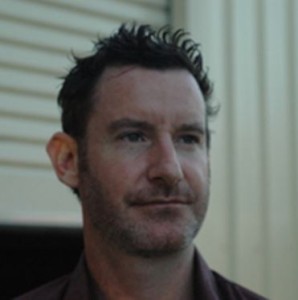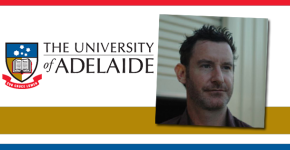
Racism can be cloaked in language that avoids overt prejudices.
Dr. Scott Hanson-Easey, a public health researcher at Australia’s University of Adelaide, is studying how subtly racist language permeates the media.
Dr. Scott Hanson-Easey is a researcher in the Discipline of Public Health at the University of Adelaide. His research, employing discourse analysis and social representations theory, addresses social issues pertaining to refugees, racism, intergroup relations, climate change, environmental risk perception and new and emerging communities in South Australia.
Talk Radio Racism
The question of what counts as racism has long been of interest to social psychologists. In recent times, discursive psychologists have turned their attention to how people tread the narrow path of not sounding overtly racist, whilst simultaneously pre-judging social groups based on their sociocultural, racial, or ethnic background. This is delicate social business – being perceived as racist is something most people try to avoid.
This research aims to better understand how subtle forms of racism are practiced in talk by examining how individuals on talk radio discuss the Sudanese community in Adelaide, South Australia. Martha Augoustinos, Gail Maloney and I were motivated to look at this topic when we noticed that Sudanese immigrants, like other immigrant cohorts before them, were being depicted in the media as ‘not fitting in’.
What particularly interested us was how speakers on talk radio fashioned causal explanations for this group’s purported behaviour.
What we found was that people were making claims that Sudanese Australians’ sociocultural background predisposed them to antisocial and violent behaviours, and that this was undermining their ability to settle into the dominant culture.
Sudanese ‘culture’ was constructed as a static, natural, and trait-like attribute – for example, it was inferred by some callers that Sudanese immigrants brought with them a kind of “tribal” nature and that this explained any violence they may be involved in. This is what psychologists refer to as psychological essentialism. When people essentialise social groups on the basis of race or culture this functions to categorize groups, rendering all individuals within the group similar while highlighting inter-group differences.
We found that speakers used implicit essentialist reasoning to assert why Sudanese Australians were ‘not fitting in’ and, importantly, why they would face great difficulty doing so in the future. In the political rhetoric we analyzed, this ‘cultural essentialism’ talk was integral to justifying why the annual intake quota of humanitarian refugees from Sudan should be significantly reduced.
Our findings draw attention to how essentialist representations of a minority’s sociocultural background can be used by speakers to avoid sounding overtly racist and yet, at the same time, effectively instantiate what are arguably racist and exclusionary practices.

Comments
One response to “Scott Hanson-Easey, University of Adelaide – Talk Radio Racism”